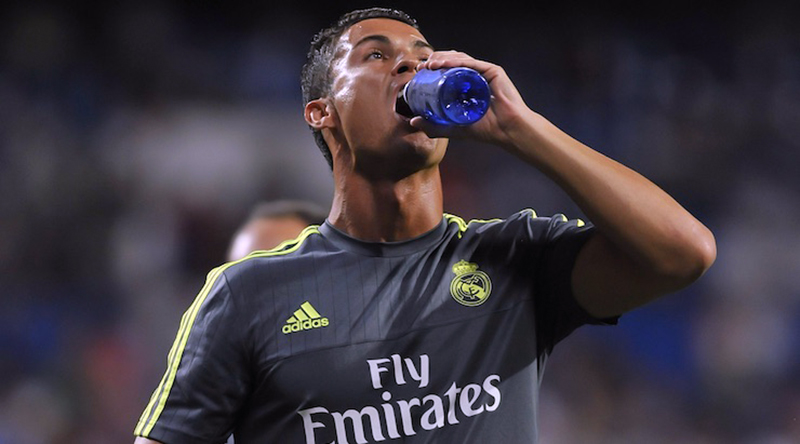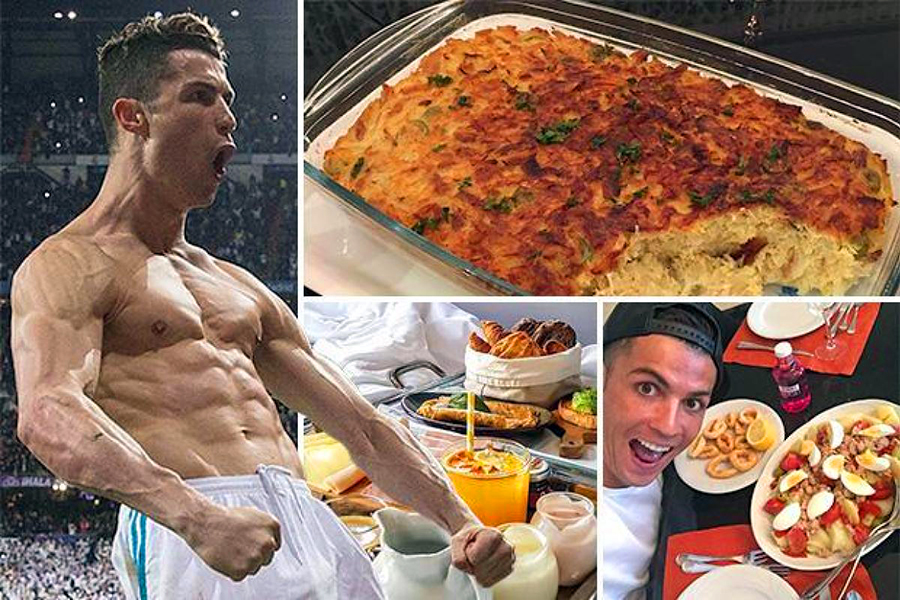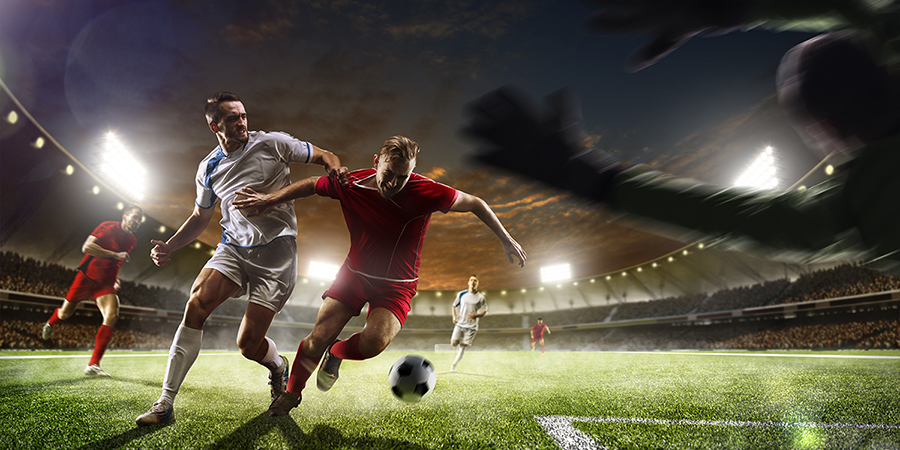Nutrition for Soccer Players
Nutrition for Soccer Players
The growth and popularity of soccer (also known as Football or Footbal) around the world has led to increased interest in the game from players of all ages. While many have taken to soccer as a professional career at an elite level, others play the game at an amateur or recreational level. Amateur players usually have work and study commitments to manage around their soccer schedules. Professional players also have a busy schedule as matches are played all year round with the number of weekly games varying between competitions.
The level of physical exertion required means that soccer players must be skilled, fast, agile, strong, and possess a high level of aerobic fitness. Although soccer players come in various shapes and sizes, low body fat levels are beneficial for speed and agility across the board. The rigors of weekly performance and combining soccer with other activities can produce a hectic lifestyle. To manage this busy lifestyle at both the amateur and professional level, good nutrition habits are important.
Players usually require regular training to perform at optimum levels during matches. Soccer training sessions and matches comprise aerobic and anaerobic activity, which can be physically demanding depending on the level of competition. However, the nutrition requirements for each individual is determined by training load, the specific needs of the athlete, training goals, body composition goals, health and adjustment for growth in younger players.
In the course of a game, a player is required to switch between walking, jogging, running and sprinting usually while using their speed and agility to also control the ball. In a professional game, a player can cover about 10km, accelerate 40-60 times, and change direction frequently while on the pitch.
It becomes very important to properly manage a player’s nutritional intake as these patterns of play can substantially reduce muscle fuel stores (glycogen). Such a reduction can cause fatigue and lead to a dramatic reduction in running speeds during the later stages of the game.
Hydration needs
Water remains a basic requirement in our day-to-day lives. For athletes and specifically soccer players across all levels, hydration is of vital importance. Players need to have fluids with all meals and snacks. Carrying a water bottle throughout the day, and drinking 200-600ml of fluid just before the start of training are useful strategies to stay well hydrated. In training, players should make use of any break opportunities to have a drink — water or some other recommended sports drink. Sports drinks contain carbohydrate to help replace energy stores as well as fluid and electrolytes for rehydration.

After training, rehydration is also important. That is particularly true when training takes place in hot weather or there are back-to-back training sessions as it often happens in a competition. Fluids with additional electrolytes and salty foods consumed alongside fluids (e.g. vegemite on crackers) can help with rehydration goals. But each player’s needs differ and that must be put into consideration when making decisions on appropriate nutrition.
During matches, fluid requirements can be considerably higher due to the high intensity of a match. In hot weather, this becomes even truer. Dehydration can negatively impact soccer performance, especially when it has to do with endurance, skill execution, speed and decision-making with or without the ball. Therefore, players should be in the habit of taking fluids at regular intervals.
Pre-game diet requirements and examples
The high level of performance required from players necessitates proper fueling before matches. Most players consume pre-game meals three to four hours before a match. It is important that this meal contains carbohydrates for fuel as well as fluids for hydration. Also, a small amount of protein in the meal is necessary, as it can help prevent hunger during the game and help prevent muscle breakdown. The right balance of nutrients will keep the body performing at optimum levels.
The following are good ideas for pre-game meals:
- Chicken stir-fry with rice or quinoa
- A bowl of granola with yogurt and berries
- Chicken wrap or sandwich with salad
- Pasta with meat in a tomato-based sauce
- Pumpkin soup served with bread rolls (Vegetarian option)
Having an additional small snack 1-2 hours before the game is also common. This is usually something light and rich in carbohydrate but low in fat and fiber that’s easy to digest.
Required diet during games and examples
Players rarely have the time to eat during games. The brief period during the half-time break is the only opportunity for consuming carbohydrate during games. Players, especially those with a high workload (e.g. midfielders) will benefit the most from consuming a carbohydrate snack during the break. These players tend to have the greatest requirements for carbohydrate and fluid during a game and so a quick fix like this can be very beneficial.
Taking chopped fruit or muesli bars are also easy-to-eat options. Other specialized sports nutrition products such as energy bars, gels, and sports drinks also provide quick options.
In addition to water, sports or electrolyte drinks may be useful during a game for players given to high energy needs or heavy fluid losses as these drinks deliver fuel and electrolytes to replenish lost energy.
However, it’s vital for players to work closely with an Accredited Sports Dietitian individually to trial nutrition strategies during training and matches to find which foods work best for them.
Post-game diet requirements and examples
After the game, players also need a good recovery diet. Such meals and snacks should contain carbohydrate (fuel), some protein (for muscle repair and development) and plenty of fluids and electrolytes to replace sweat losses.
Meals or snacks designed to aid recovery should be consumed immediately after the game or exercise period. Recall that recovery nutrition extends well beyond the initial hours after the game, particularly when the next training session or game comes up the next day. Apart from solid food, fluids should also be taken, although based on estimated requirements.
The following are some recovery foods that could be consumed:
Yogurt + granola with nuts and seeds
Chicken, avocado and salad sandwich
Dairy-based fruit smoothie
Burritos with beef, cheese, avocado, and salad
Soccer nutrition best practices
Active soccer players must adhere to certain best practices in order to get the best of their bodies as players. To achieve this, an Accredited Sports Dietitian is usually required. Whether or not a player is involved in the game at an elite level, one of the key components of a holistic approach to player development is nutrition education.
For elite soccer players who are often required to travel locally, nationally or internationally for games and competitions, foresight and appropriate travel nutrition plans are essentials for optimized performance.
Certain nutrition rules must be adhered to for optimum health and well-being of a player. These include the following:
Start your day with a good breakfast
When you eat a good meal within 30 minutes of waking up, you jump start your metabolism. This gives you more energy and puts you in the right frame of mind to get your day going.
Eat fruits and vegetables often
Ideally, you should eat fruits or vegetables with each meal. Choose a wide variety of colors – “eating the Rainbow” — for the biggest benefit.
Eat regularly
Eat multiple smaller portions regularly throughout the day. Don’t make excuses. Eat 4-6 meals a day and aim for all three macronutrients (carbs, protein, and fat) every three hours for optimal fueling.
Drink lots of fluids but not alcohol
Drink at least three liters of non-caloric beverages such as water, green tea, etc. every day.
Take recovery seriously
Have a post-workout recovery meal or shake that combines both carbs and protein immediately after a game or training session.
Stay informed
Take issues of nutrition seriously and be well informed about what you consume.
Rest
Aim for eight hours of rest and sleep. If you can’t get eight hours daily, consider power naps when you can. The body recovers and repairs best when you sleep.
Example diets from soccer celebrities (Cristiano Ronaldo)
When it comes to the game of soccer, not every player is the same. Some perform at their very best while others struggle to perform at the highest level for a long period. A player like Cristiano Ronaldo is an excellent example of what it means to take good care of your body for optimum performance.
At 33, Ronaldo is still at the top of his game. No doubt, he works very hard to stay on top and has even stated that “Talent without working hard is nothing.” To meet up with the demands he places on his body, smart nutrition plays a huge part in his output. What is Ronaldo’s diet like? Let’s take a look at his diet and eating habits.

Six (Small) Meals
As is the case with many other top professional athletes, Ronaldo eats at regular intervals throughout the day. For a player who averages 11 km of running per game, Ronaldo eats food fit for an athlete trying to meet high energy demands. As revealed in his social media postings, he begins the day with a large breakfast. He also adheres to the typical meal and snack portions required to be at his best during games and training.
Variety is the Spice of Life
As revealed in a 2012 study published in the Journal of the International Society of Sports Nutrition, professional female soccer players who meet their micronutrient and fiber needs through their food had improved antioxidant and immune capacity and reduced cell damage than those who didn’t. The B-vitamins, vitamin C, chromium, copper, and omega-6 fatty acids were significant in this regard. A cursory look at Ronaldo’s diet, as revealed in his social media handle shows all of these are present.
Consuming these types of diets that are rich in colorful fruit and vegetables helps prevent skeletal muscle damage that is usually an inevitable byproduct of the intense exercise necessitated by soccer match play. Also, when such injuries do occur, recovery from them can be positively modulated by eating these kinds of foods that are rich in antioxidants.
Limit or Totally Avoid Alcohol Consumption
Ronaldo’s father reportedly died aged 50 as a result of an overuse of alcohol. It is therefore understandable that both from a professional and an emotional point of view, the five-time Ballon d’Or award winner incorporates a strict limit on alcohol in his diet philosophy.
It has been scientifically proven that alcohol can hinder adequate rest and recovery. It interferes with an athletes ability to adequately rehydrate and to replenish their carbohydrate stores. By avoiding alcohol Ronaldo ensures that he is adequately replenishing his glycogen stores between games so that he is prepared enough to play at his usual high intensity in his next game.
In the final analysis, eating like Cristiano Ronaldo (or any top athlete for that matter) takes discipline and focus. That may not be easy to achieve, but the rewards far outweigh the sacrifice and effort required.


